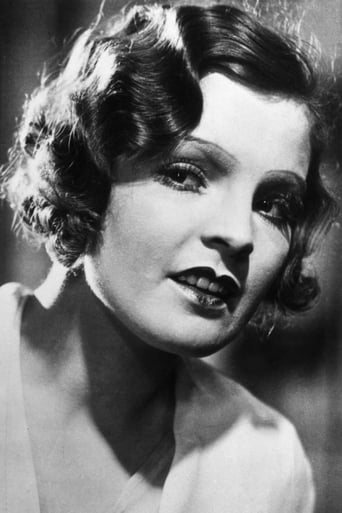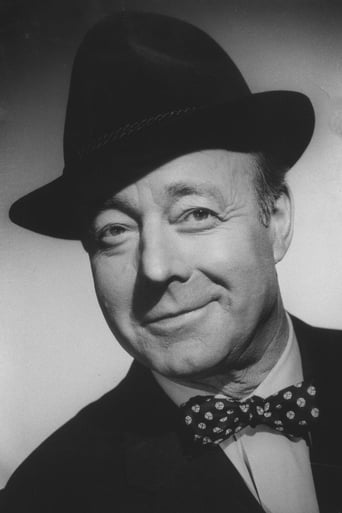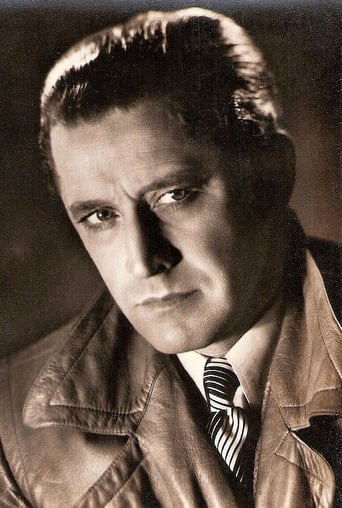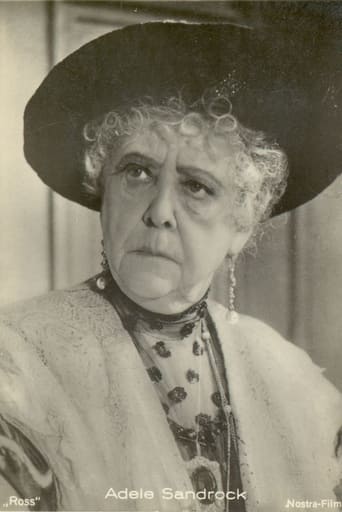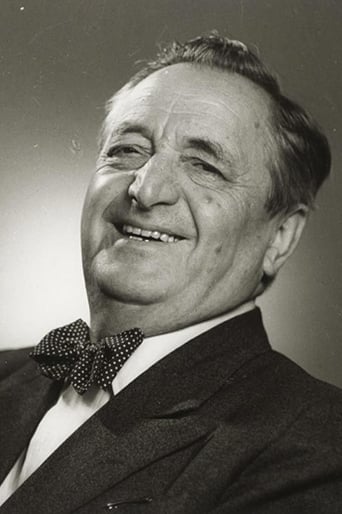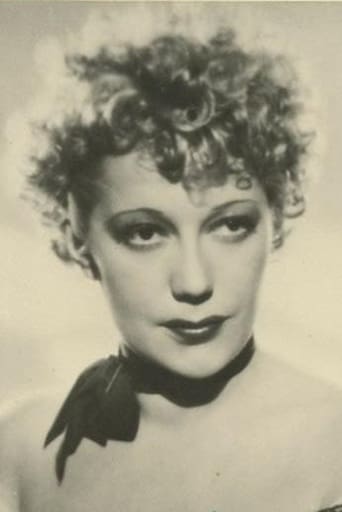Marcin Kukuczka
After the introduction of sound, the medium met a new challenge of how to deal with dialog. The 1930s seemed to be a wonderful moment to introduce a variety of funny characters to the audience, different sorts of people from the pompous representatives of the authoritative relations to talkative types who could bring the viewers to the tears of laughter through their hilarious lines and unusual behaviors. In that respect, we have to consider the particular moment of Austrian history when the ministry of propaganda was already acting severely and yet, some great films still came out.And one of such considerably unknown early comedies is EVA directed by Johannes Riemann and based upon the libretto by Alfred Maria Willner and Robert Bodansky. Although innumerable liberties were taken with the original source by Ernst Marischka who had adapted the libretto to the screen, the film is still a surprising, almost flawless and undated entertainment that evokes pure satisfaction with vibrant action, skillful acting, wonderful pieces of music by Franz Lehar, appealing humor and unique atmosphere. I have seen this movie for the sake of Magda Schneider but I found many more aspects really rewarding. Since the movie is hardly known today, let me outline the key aspect of the content.The opening scene with an image of Eve in the garden of Eden creates presumable expectations that do not disappoint a viewer as the storyline develops. Georg von Hochheim (Hans Soehnker) is a car racer and sees his future as a rather light hearted man with a beautiful cabaret singer, Olly (Mimy Shorp), at his side. Career, success, popularity and easy going existence - that is what all his friends drink a toast to at an exquisite banquet from an exquisite 'chalice.' Yet, young Georg cannot forget that his honor should lie in his family tradition and his future investment should be nothing but a porcelain factory. Who is there to help him discover this 'providential fate'? An authoritative Grandma (rather unusual feature for Grandmas). She is there to remind her grandson of what it means to be an 'echter Hochheimer' – true Hochheimer ... being the one and acting like one. She sees her young grandson as someone who can bring new blood, new ideas to the running of the factory. The moment the young man takes up this task is a breakthrough decision for all. Will he act like a true Hochheimer as the key target soon does not merely occur to be a porcelain factory but a young, sympathetic lively employee, Eva (Magda Schneider)? Perhaps yes...but surely, he will not act like a conventional, stereotypical boss...As a matter of fact, the principal aspect of the comedy does not lie so much in the protagonist as in a variety of people Georg meets as both the disguised Max Schmidt, a hairdresser and the boss Georg von Hochheim. Although his performance is outstanding, all the cast deserve special appreciation and applause for their wonderful contribution. A representative of the old generation, Grandma Malvine (Adele Sandrock) with her sweet dog Waldemar who always nods, strict yet sensation greedy 'reporter' Vinzenz (Hans Moser), suspicious yet sympathetic stepfather of Eva's played by Ferdinand Meyerhofer, charming Olly (Mimy Shorp) and, above all, the man most wittily labeled as the one who 'constantly talks but never pays' Willibald Riegele played marvelously by Heinz Ruehmann. While Mimi Shorp deserves attention because of some songs she sings and some costumes she wears, Heinz Ruehmann considerably contributes to the entertainment the film carries. His capacity of speech and the number of words he says must be a smashing surprise among all and the number of moments when viewers will be surprised by their loud laughter breaks many records among modern comedies. Just note the exchange of boxes or his talk about love to one 'inexperienced' Kunegunde, the talk that becomes reality also for this 'unworthy customer'... Considerable attention should be paid to the performance of Adele Sandbrock and her many scenes of particularly skillful 'performer-audience' communication attempts. Though even she will be speechless one day, our attention is occupied by extensive use of dialog. However...The exception to this are Georg/Max's meetings with Eva, the factory girl he falls in love with head over heels. Great subtle portrayal by Magda Schneider, Romy's mother, two years after her romantically dramatic role in LIEBELEI. Their scenes are the most memorable in the entire movie thanks to very good pairing of protagonists, their outstanding chemistry and the natural feelings that constitute a major contribution to an appealing portrayal. These scenes are both very romantic (a pure classical product of the era) and very humorous. The wordiness, however, is sometimes replaced by music. They act, they sing, they dance and in that respect, the film shows a clear resemblance with a German production of the same year, ICH LIEBE ALLE FRAUEN. Let me highlight the moment when 'Max' pretends to be a good hairdresser and the effect is so suspicious. The big scenes of Eva's birthday as well as the final banquet are nothing but the pinnacles of the movie's charm. The storyline can get a little bit vague and complicated at first viewing, but when you see the film again, you realize the essence of these moments.The camera-work and the sets are also worth a note, including an interesting juxtaposition of images from pouring patrol to pouring champagne. The film can also boast of some nice close-ups. In spite of the hateful propaganda of the time, it has survived as an example of pleasant Austrian type of romantic comedy.EVA is a pure entertainment, timeless charm that transcends every possible bit of dated flaws into desirable relief to see it 'today' as it was 'yesterday.' - the comedy that has stood a test of time. Much fun, genuine laughter, aesthetic satisfaction, some empathy, great screen presence of Magda Schneider and other great performers of the time and... an indeed speechless finale.
cynthiahost
The original Franz Lehar operetta opened November 24 1911.It was about a glass factory, owned by a man, who's having financial trouble with it .So he sends his nephew George to see if he can make it profitable.He shows up when the factory workers and her step father ,Holzer, is giving Eva a birthday party, on her 20th birthday. She receives a dowry , so when she gets married. George starts to fall in love with her when she shows him the works.While co worker Stephan feels he has to defend her honor. Well the movie changes things.Johannes Riehman, director, has almost all the songs eliminated . The few he keeps is sung in real time and background music. One of the songs they keep I had heard a semblance background music in 'Grand hotel', 1932. The factory owner is a women ,played by Adele Sandrock . The factory is now a porcelain factory,obviously, cause it would of been too dangerous to teach the actors how to blow and mold glass.. You have a cabaret singer, Olly , played by Mimi Sharp, who sings most of the remained songs. The pace is a little slow,in the beginning ,but it pick up later.Although the print is sharp and has not shrunk,it has some scratches that could of been eliminated.On the DVD menu it explains when the production began ,summer of 1935,and by august the ministry of propaganda approves of it .It shows the paper. Victor Staal and a very young Paul Hienrich , as Fritz before he left for the united states, makes an appearance. Frank Schafheitland plays Stephan who is now in love with Eva Heinz Ruhmann plays Willibald the porcelain salesman,who's also has a romantic interest in her.In this move all the main stars are giving a chance to show their talent off without upstaging each other.In the night club scene , Mimi Sharp shows her talent as a singer and dancer. When Eva is given an invitation to George's party , by his chauffeur, her step dad, played by Ferdinan Mayerhofer,forbids her but later changes his mind.When frank finds out she's gone to George's party ,he goes out to rescue her form death.Once he shows up George states that he's engaged to her. This happens after everyone in the factory finds out who he is . There is a funny scene where Heinz Ruhmann is accused by the security guard,played by Frtiz Imenhoff of stealing some porcelain as he waiting for eve to show up after work so he can give her flowers. He ends up in prison half the weekend. This is a good romantic comedy As an operetta Franz Lehars ,"Merry Widow ," is better . But as a film it's good
